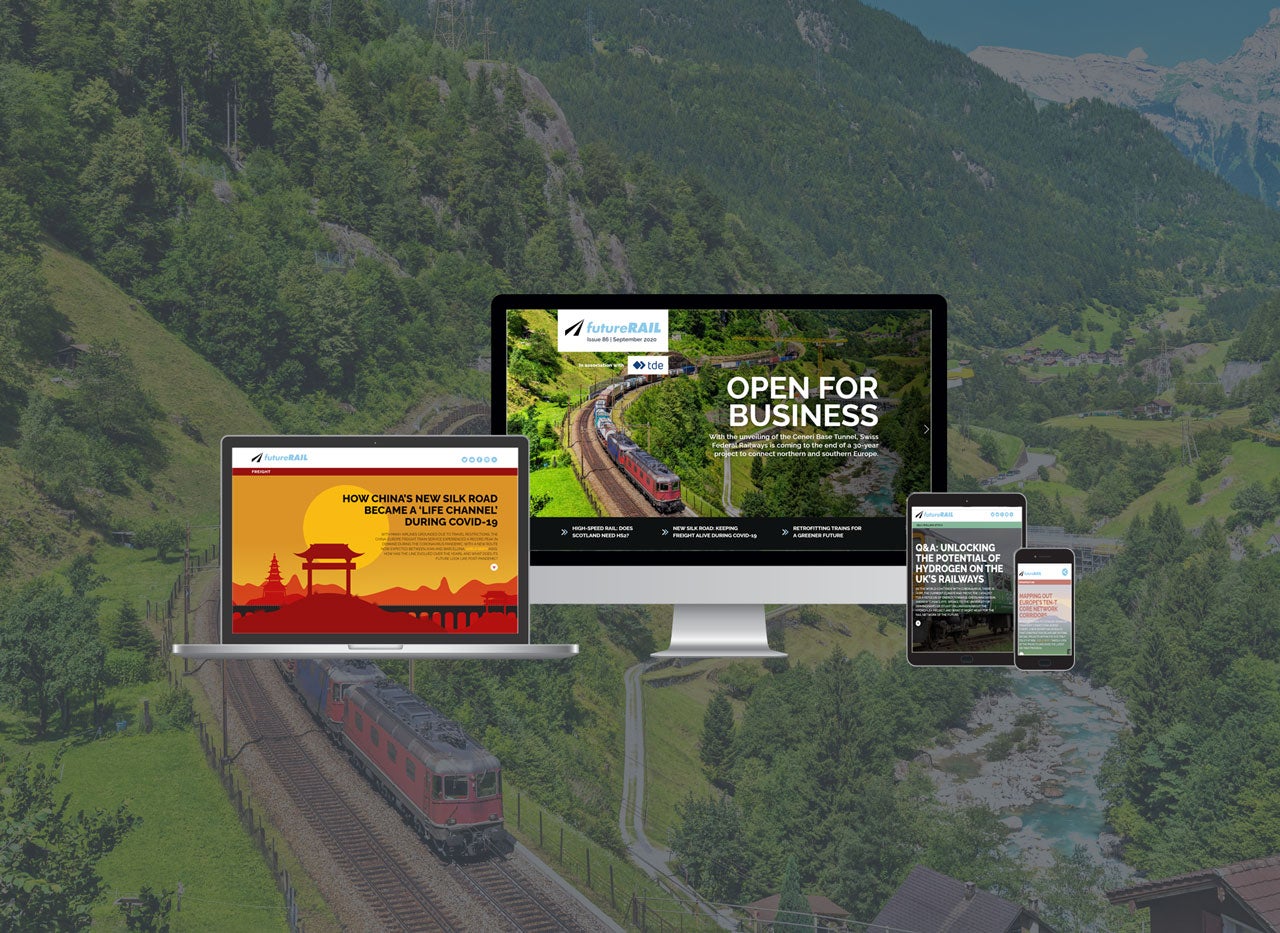
Future Rail is back for another issue packed with technology news and industry analysis. In this issue, we ask about the challenges and milestones behind Switzerland’s enormous New Rail Link network, chart the progress of the EU’s Trans-European Transport Network corridor projects, and speak to the minds behind the UK’s HydroFLEX project about the potential of hydrogen for UK railways.
Whether you are on a desktop, tablet or smartphone, you can read the magazine for free online.

In this issue
Clearing the air: UK rail’s new air quality strategy
Air pollution from the rail industry could be having significant local effects, but there are still many knowledge gaps around the sector’s impact on air quality. RSSB’s new strategic framework document on air quality sheds some light on how the UK rail industry is responding to these concerns. Chris Lo reports.
How well do you really know your competitors?
Access the most comprehensive Company Profiles on the market, powered by GlobalData. Save hours of research. Gain competitive edge.

Thank you!
Your download email will arrive shortly
Not ready to buy yet? Download a free sample
We are confident about the unique quality of our Company Profiles. However, we want you to make the most beneficial decision for your business, so we offer a free sample that you can download by submitting the below form
By GlobalData
New Rail Link: inside Switzerland’s largest-ever construction project
Almost 30 years after a high-speed rail link was voted for by the Swiss in a referendum, the final section of the new rail link – a high-speed rail link through the Alps – is set to open to rail traffic in December 2020. Alex Love finds out more about this historic €21.3bn project, the milestones of which include the creation of the 35-mile-long Gotthard base tunnel.
A level crossing: should Scotland be on the HS2 railway line?
An influential group is calling for Scotland to be included in the route for the UK’s High Speed 2 line if the government wishes to meet its recent pledges to “level up” the region. Andrew Tunnicliffe talks with Greengauge 21 CEO Jim Steer to find out why this is important and what needs to be done to achieve it.

Q&A: unlocking the potential of hydrogen on the UK’s railways
As the world contends with coronavirus, there is hope the current climate may prove the catalyst for a refocus of energy towards green innovation. Andrew Tunnicliffe speaks to the University of Birmingham’s Dr Stuart Hillmansen about the HydroFLEX project and what it might mean for the rail network of the future.
Green retrofitting: cleaning up diesel rolling stock
After a successful pilot, UK companies Porterbrook and Eminox will trial the retrofitting of additional diesel train models to filter out the very worst diesel pollutants. Ilaria Grasso Macola finds out why retrofitting could be the best solution for companies that do not want to go electric.
How China’s New Silk Road became a ‘life channel’ during Covid-19
With many airlines grounded due to travel restrictions, the China-Europe freight train service experienced a record peak in demand during the coronavirus pandemic. With a new route now expected between Xi’an and Barcelona, Adele Berti asks: how has the line evolved over the years, and what does its future look like post-pandemic?

Mapping out Europe’s TEN-T core network corridors
While promising to establish seamless transport connections across Europe, a new report has revealed that construction delays are putting six rail projects within the EU’s TEN-T policy at risk. Adele Berti takes a look at the projects and gives the latest on their progress.
In pictures: a look at Paris’s new Saint-Denis Pleyel station
Designed to welcome more than 250,000 passengers a day, Paris’s Saint-Denis Pleyel is set to become one of the biggest stations in the city’s metropolitan area. In this picture feature, Ilaria Grasso Macola finds out what the station will look like when it opens in 2024.
Next issue
After a ScotRail train derailed in Stonehaven, Scotland earlier this year, we explore the lessons to be learned from the tragedy, particularly in terms of climate risk and operational best practice.
We speak to a specialist cleaning company to find out more about the technical aspects of deep cleaning trains and railway stations to prevent the spread of Covid-19. We also find out whether energy-efficienct design choices at Birmingham Curzon Street, an upcoming hub being built for the UK’s High Speed 2 (HS2) line, will help it set a greener example for other stations to follow.
Also in this issue: we ask whether HS2 and other high-speed rail networks are delivering on their green commitments; find out what Indian Railways’ recent moves towards a private model will mean for passengers; and discuss the future of Brightline, the US’ only privately owned intercity rail service, which recently ended its partnership with Virgin Trains.
Finally, we debate whether railway taxes should be fundamentally changed in the UK and find out more about a project to create a bespoke digital language tool to assist with communication between train drivers of different nationalities.
Would you like to be notified when a new issue of Future Rail is out? Sign up for email alerts here!
We will only use your email address to let you know when a new issue is available. Future Rail is published bimonthly.



